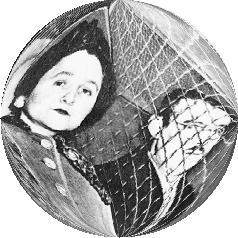| September 28, 1915 | Ethel Greenglass Rosenberg born |
| March 1917 | The Russian Revolution begins |
| 1917 | Espionage Act that the Rosenbergs are convicted of violating is enacted |
| May 12, 1918 | Julius Rosenberg born |
| 1929 | Communist Party of the United States is founded |
| Early 1930's | Julius Rosenberg is member of Young Communist League; campaigns for Scottsboro Boys |
| 1934 | Julius Rosenberg enters City College of New York; is involved in radical politics |
| Summer 1939 | Julius and Ethel Rosenberg married |
| December 7, 1941 | United States enters World War II after the attack on Pearl Harbor |
| 1942 | Julius Rosenberg becomes member of U. S. Signal Corps |
| 1943 | Rosenbergs cease open activities with Communist Party; Daily Worker subscription stops |
| 1943 | Soviet spymaster Feklisov first meets with Julius Rosenberg |
| July 1944 | David Greenglass chosen to work on the Manhattan Project |
| November 1944 | Julius Rosenberg recruits aid of Greenglasses in obtaining information about the Manhattan Project |
| December 1944 | Julius Rosenberg provides Soviets with a proximity fuse |
| January 1945 | David Greenglass provides his own notes and a sketch of a high-explosive lens from the Manhattan Project |
| June 1945 | Harry Gold meets with Greenglass in Albuqurque |
| July 16, 1945 | United States explodes first Atom bomb at Alamogordo, New Mexico |
| August 6, 1945 | United States drops Atom bomb at Hiroshima |
| September 2, 1945 | World War II ends with the Japanese surrender |
| September, 1945 | Greenglass meets with Rosenberg while on forlough in New York |
| 1945 | Julius Rosenberg is dismissed from U. S. Signal Corps |
| 1946 | Feklisov meets with Julius Rosenberg for the last time |
| Late 1946 |
The Venona Code is broken |
| 1947 | Rosenberg's machine shop business fails |
| June 30, 1948 | Max Elitcher and Morton Sobell drive to Catherine Slip where Sobell met with Julius Rosenberg to exchange microfilm |
| August 28, 1949 | Soviets detonate their first Atom bomb |
| January 21, 1950 | Alger Hiss convicted of perjury in denying that he passed secret documents to Communist agent Whittaker Chambers |
| February 2, 1950 | Klaus Fuchs arrested |
| March 1950 | Julius Rosenberg warns Greenglass to flee country |
| May 1950 | Rosenberg asks his physician about what kind of shots are necessary for trip to Mexico |
| May 22, 1950 | Harry Gold confesses to the FBI |
| May or June 1950 | Rosenbergs visit a photographer to obtain passport photos |
| June 15, 1950 | David Greenglass names Julius as the man who recruited him to spy for the Soviet Union |
| June 16, 1950 | Julius Rosenberg is first interviewed by FBI; Joel Barr disappears in Paris |
| June 30, 1950 | United States forces engage in the Korean War |
| July 17, 1950 | Julius Rosenberg arrested while shaving |
| August 11, 1950 | Ethel Rosenberg arrested |
| August 1950 | Sobell and family are kidnapped by Mexican thugs and delivered to U. S. authorities at border |
| January 31, 1951 | Grand jury indicts Rosenbergs, Sobell, David Greenglass, and Yakolev |
| February 1951 | Greenglasses change their story, implicating Ethel Rosenberg in spy activities |
| March 6, 1951 | Trial begins |
| March 15, 1951 | William Perl is arrested on espionage charge |
| March 28, 1951 | Trial ends |
| March 29, 1951 | Jury returns verdict: Guilty of conspiracy to commit espionage |
| April 5, 1951 | Judge Kaufman imposes the death sentence on Rosenbergs, sentences Sobell to 30 years |
| January 10, 1952 | Appeal before the United States Court of Appeals, Second Circuit |
| February 25, 1952 | Appeal denied by Second Circuit Court of Appeals in opinion by Judge Jerome Frank |
| October 13, 1952 | Supreme Court announces that it ruled against granting certiorari on the Rosenberg's appeal |
| June 13, 1953 | Supreme Court denies stay of execution |
| June 17, 1953 | Supreme Court Justice William O. Douglas grants stay of execution |
| June 19, 1953 | Supreme Court, in special session, vacates Justice Douglas's stay of execution |
| June 19, 1953 | Julius and Ethel Rosenberg are executed |
| June 21, 1953 | Funeral of Julius and Ethel Rosenberg |
| 1960 | Proximity fuse enables Soviets to shoot down American U-2 spy plane over Soviet territory |
| 1969 | Martin Sobell is released from prison |
| 1970- 1974 | Khrushchev tape records his memoirs containing observations on the Rosenbergs spy role |
| 1985 | Barr and Sarant flee to Soviet Union |
| 1990 | Khrushchev memoirs are published, suggesting that Rosenbergs helped Soviets acquire the A-bomb |
| July 11, 1995 | Decoded Venona cables indicating Rosenberg's involvement in espionage are released by NSA and CIA |
| 1997 | Soviet spymaster Feklisov admits in interviews that he met with Julius Rosenberg between 1943 and 1946 |
| 2001 | David Greenglass admits that the trial testimony of the Greenglasses concerning Ethel Rosenberg's role in the conspiracy was perjured. |
| 2008 | Martin Sobell finally admits that he spied for the Soviet Union. Also, newly released grand jury testimony suggests that the Greenglasses may have lied in their trial testimony when they stated that Ethel Rosenberg typed up the secret information provided to the Soviets. In her grand jury testimony, Ruth Greenglass said that she wrote the secret information in longhand--testimony that is consistent with decoded Soviet cables indicating that the material came to them in longhand form. |

